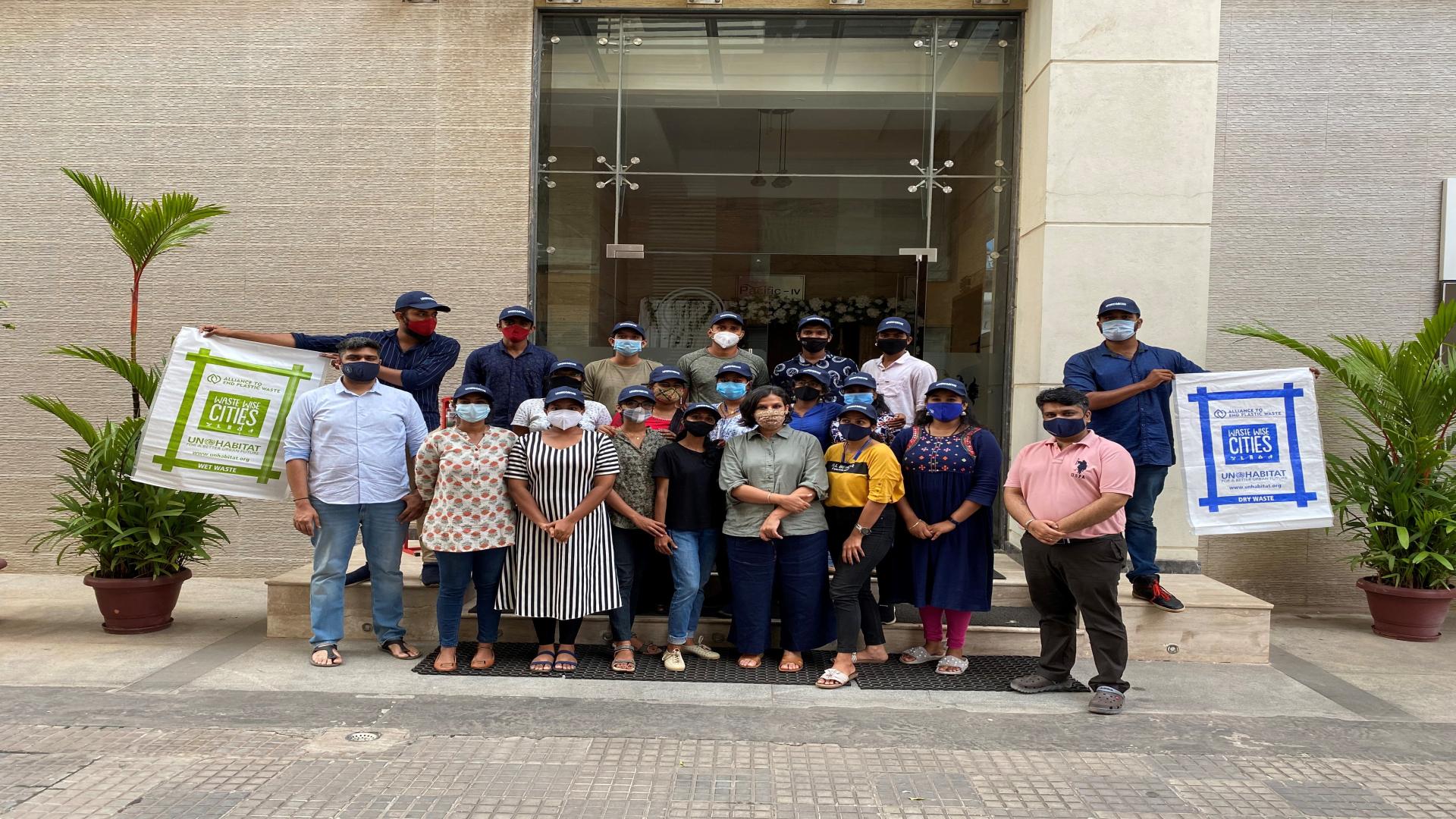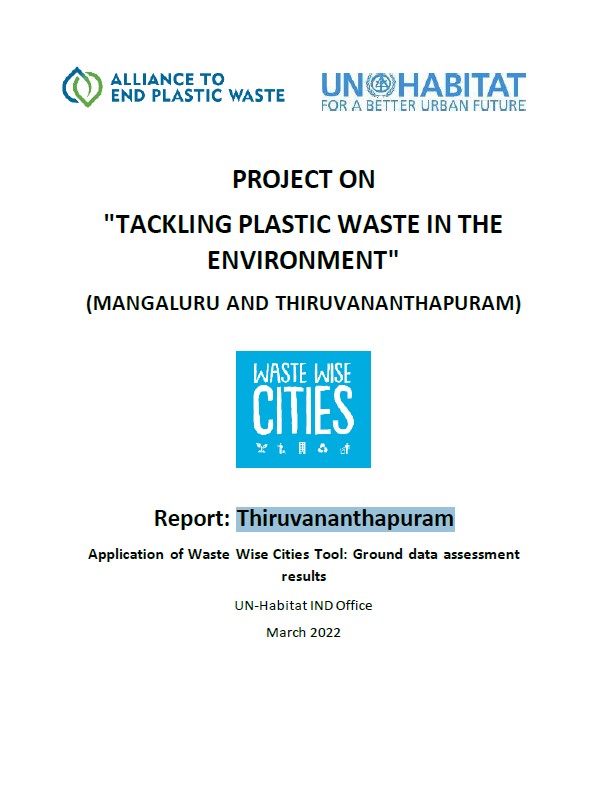Tackling Plastic Waste in the Environment
UN-Habitat's flagship initiative, in collaboration with offices in Ethiopia and India, embodies the SDGs' core principle of leaving no one behind. The initiative is actively supporting six cities in Ethiopia, India, and Kenya.
In India, UN-Habitat is implementing this project in Thiruvananthapuram and Mangaluru, with a focus on fostering circular economies, creating business opportunities, and improving resource recovery. This groundbreaking effort marks a crucial step toward evidence-based development in municipal solid waste strategies.
The challenges
Limited Data Availability
The lack of comprehensive data on municipal solid waste (MSW) generation and management, particularly in low- and middle-income settings, poses a challenge. This data gap hinders the accurate assessment of waste flows and the design of effective waste management strategies.
Inadequate Infrastructure
The existing waste management infrastructure in target cities are insufficient, leading to challenges in implementing proposed strategies. Inadequate infrastructure can result in difficulties with waste collection, segregation, and disposal.
Capacity and Awareness Building
Building the necessary capacity and awareness among the population is a critical aspect. Cities face challenges in educating and engaging communities to actively participate in waste management practices and adopt sustainable behaviours.
How to respond to them?
Enhancing Data Accessibility
Addressing the challenge of data gaps, the project will systematically conduct comprehensive waste audits and leverage advanced technology, such as data analytics. This approach aims to fill data gaps, enabling well-informed decision-making for the formulation and execution of effective waste management strategies.
Boosting Infrastructure Resilience
In the face of inadequate waste management infrastructure, the project will strategically develop phased plans for infrastructure enhancement, with a special focus on critical areas like waste collection and recycling facilities. Furthermore, the initiative will actively seek public-private partnerships to secure both funding and expertise for sustainable infrastructure development.
Empowering Communities and Capacities
To address capacity and awareness gaps, the project will proactively implement targeted awareness campaigns, conduct comprehensive training programs, and actively engage communities. These initiatives are designed to empower communities and enhance the capabilities of local authorities for more effective waste management.
What have we achieved so far?
Improved Waste Management Understanding
This program facilitated a comprehensive analysis of Thiruvananthapuram's solid waste management process, offering quantitative and qualitative insights. It enhanced the city's understanding of waste flow, efficiency in collection, and environmental leakages.
Enhanced Recovery and Efficiency
WaCT identified key intervention areas, leading to improvements in waste recovery. The analysis revealed that Thiruvananthapuram Corporation (TMC) could recover 57% of the generated waste, with a detailed breakdown of contributions from formal and informal sectors.
Informed Decision-Making for SDG 11.6.1
The project contributed to achieving Sustainable Development Goal (SDG) 11.6.1 by identifying four crucial intervention areas, including awareness building, resource recovery enhancement, better management of uncollected waste, and circular financing in solid waste management projects.
Addressing Critical Issues
The analysis uncovered critical issues such as increased waste generation, changes in waste composition, and the need for better management of rejects. It emphasized the importance of addressing uncollected waste and minimizing environmental leakages.
Strategic Recommendations for Improvement
The project generated actionable recommendations for Thiruvananthapuram, including the need for expanding waste collection coverage, auditing waste management facilities, optimizing revenue generation from recyclables, and regulating private entities in the value chain to ensure environmental compliance.
Donors and Partners
This programme is funded by the Alliance to End Plastic Waste INC, a not-for-profit organization. UN-Habitat, particularly its India office, is the implementing partner, working closely with the Ministry of Housing and Urban Affairs. Thiruvananthapuram Municipal Corporation (TMC) is a local government collaborator actively engaged in waste management initiatives. Together, these partners aim to assess municipal solid waste, map waste flows, and develop sustainable interventions to address plastic pollution.



